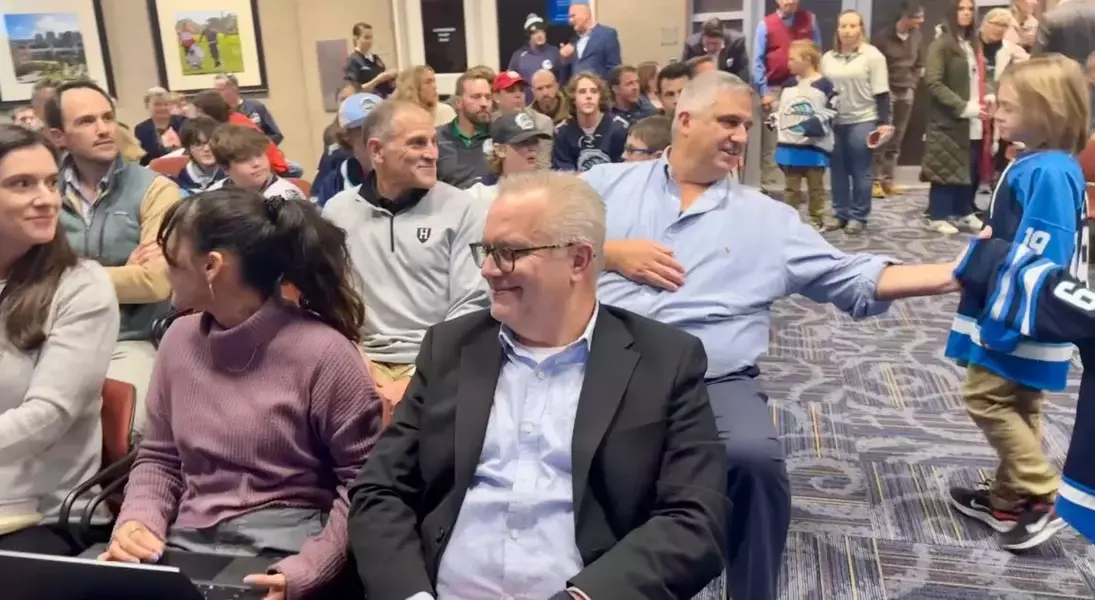
A major hurdle has been cleared for the development of a two-ice-rink facility in Palm Beach Gardens thanks to a significant financial commitment from billionaire investor Larry Robbins. The project, spearheaded by the Palm Beach North Athletic Foundation (PBNAF), had faced potential collapse after the city council denied a request for additional time to secure tax-exempt financing. With just days remaining before a crucial July 3 construction deadline, Robbins stepped forward with a $41.5 million pledge that could ensure the project moves forward. This contribution replaces earlier funding strategies and eliminates the need for a previously arranged loan. While the move brings relief to supporters, critics remain concerned about the impact on the local community and the repurposing of a long-standing public park.
For months, PBNAF had struggled to meet its funding obligations after being denied an extension to secure tax-exempt bonds, which would have significantly reduced interest costs over time. Consultants initially expressed optimism that financing could be finalized by August 2, but unforeseen complications arose. Attempts to present the proposal to the Florida Local Government Finance Commission in June were unsuccessful, and shortly thereafter, it was revealed that PBNAF had withdrawn its formal request to explore alternative funding options—though those details remained vague until Robbins’ involvement became public.
Larry Robbins, founder of Glenview Capital Management and a prominent figure in youth hockey circles, already had a substantial stake in the project. Prior to his recent pledge, he had committed $10 million and offered a $12 million loan to be repaid through private donations as construction progressed. His deep personal connection to ice hockey is evident—he played at the University of Pennsylvania, coached youth teams for nearly two decades, and even built a backyard rink at his New Jersey home. Beyond sports, Robbins is known for his philanthropy, particularly through his family foundation focused on education reform and his role with the Robin Hood Foundation, which addresses poverty in New York City.
The financial mechanics behind Robbins’ latest pledge are structured through the Larry and Sarahmay Robbins Donor Advised Fund, which allows for immediate tax benefits while distributing funds over time. However, such contributions must go to qualified charitable organizations. Although PBNAF submitted the pledge documentation to the city as proof of secured funding, officials have not yet confirmed whether it meets the contractual requirements outlined in the lease agreement. Former mayor Mike Martino raised concerns that the pledge may not fully satisfy the conditions, urging city leaders to verify that all potential cost overruns will be covered, given the facility’s revised budget now exceeding $53 million.
The proposed complex, located at Plant Drive Park, has sparked heated debate among local residents. Opponents argue that converting the city's oldest park into a large-scale ice facility sacrifices valuable open space and recreational amenities such as a skatepark, basketball court, and softball field. Concerns about increased traffic and the lack of neighborhood input during the decision-making process have further fueled opposition. Supporters, however, emphasize the broader economic and cultural benefits, including partnerships with renowned institutions like the Hospital for Special Surgery and the Gretzky Hockey School. Additional backing from companies like NFP and former NHL stars underscores the growing regional interest in hockey following the Florida Panthers’ back-to-back championships.
As the July 3 construction start date approaches, the success of the project now hinges on final city approval of Robbins’ pledge. If accepted, the facility could become a premier destination for youth and amateur hockey in South Florida, offering extensive training programs, competitive leagues, and community engagement opportunities. For Mike Winter, the driving force behind PBNAF, the endeavor represents more than just infrastructure—it's a tribute to the community-building power of sports. Yet, regardless of how the final approvals unfold, the controversy surrounding land use and transparency is likely to linger, shaping future discussions around public-private developments in Palm Beach Gardens.
